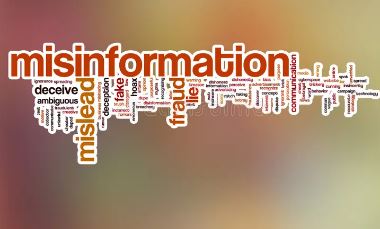
Introduction
In the age of information, where news and updates are at our fingertips, the accurate dissemination of information has never been more crucial. However, misinformation has emerged as a damaging force that can undermine social structures and democratic principles. One of the most significant sources of misinformation comes from politicians. This article explores how politicians can damage the fabric of society through the spread of misinformation.
The Nature of Misinformation
Before diving into the role of politicians, it’s essential to understand what misinformation is. Misinformation is false or misleading information spread, often unintentionally, without the intent to deceive. It becomes disinformation when the spreading is done with the intent to deceive. Both have a corrosive effect on society, eroding trust and fostering divisiveness.
Mechanisms of Spreading Misinformation
Social Media platforms like Facebook, (X Formerly Twitter), and Instagram have become fertile grounds for misinformation to flourish. Politicians often use these platforms to connect with their supporters but also to propagate false narratives.
Traditional Media
Traditional Media outlets, including TV channels and newspapers, can also play a role in amplifying misinformation, especially when they lack rigorous editorial standards or when they have a particular political bias.
Public Speeches
Public addresses, press conferences, and even casual remarks can serve as vehicles for misinformation. When politicians make false claims in these settings, these statements can be picked up and amplified by both traditional and social media.
The Impact on Society
Undermining Trust
Misinformation erodes public trust in essential institutions, including the government, judiciary, and media. When people lose faith in these pillars, the societal fabric starts to fray.
Polarization
Misinformation contributes to the deepening of social and political divides. When politicians disseminate false information that appeals to the fears and prejudices of a particular group, they create an “us versus them” mentality, which is detrimental to social cohesion.
Undermining Democracy
Misinformation can distort the democratic process. Whether it’s false information about election procedures, candidates, or issues, misinformation can mislead voters and undermine the legitimacy of elections.
Economic Consequences
False information can also have economic impacts. For example, misinformation about public health can lead to poor decisions that affect the economy. An ill-informed public is not equipped to make rational economic choices, affecting everything from stock markets to small businesses.
Case Studies
The Anti-Vaccine Movement
Prominent politicians have contributed to the anti-vaccine movement by spreading misinformation about the safety and effectiveness of vaccines. This has led to outbreaks of preventable diseases and puts public health at risk.
Climate Change Denial
Some politicians deny the scientific consensus on climate change, leading to insufficient action to combat this existential threat. Misinformation here undermines global efforts to address climate change and puts future generations at risk.
Combating Misinformation
Media Literacy
Promoting media literacy is one of the most effective ways to combat misinformation. Educating the public on how to discern reliable sources from unreliable ones is crucial.
Fact-Checking
Organizations dedicated to fact-checking can also help counter misinformation. They scrutinize statements made by public figures and provide corrections where necessary.
Legal Measures
Some countries have introduced laws aimed at curbing the spread of misinformation, although these can be controversial and pose risks to free speech.
Conclusion
The role that politicians play in the spread of misinformation cannot be understated. From eroding public trust to undermining democracy, the ramifications are far-reaching and deeply damaging to the fabric of society. It is crucial for citizens and institutions alike to take proactive steps to combat this menace and uphold the values that hold society together.

Be the first to comment